About Recovery Works Columbus
Recovery Works Columbus provides detox, residential, intensive outpatient, partial hospitalization, intensive outpatient, and alumni services.
The detox at Recovery Works Columbus is for those who are seeking to remove all harmful substances from their body. It is overseen by professionals who are trained in addiction medicine and who can help create a safe and effective detox. Medications will be used to provide as much comfort as possible.
Residential treatment is for individuals who need a high level of care and support during the initial stages of their treatment. Individual treatment plans are created and consist of individual, family, and group therapy in addition to medication management, anger management, and grief and loss therapy. Evidence based and clinical treatments, along with traditional 12 Step and SMART meetings will be offered.
The partial hospitalization program at Recovery Works Columbus is a step down from the inpatient program. It often serves as a bridge between inpatient and traditional outpatient treatment. Group sessions, individual therapy, and regular meetings take place throughout the week.
Intensive outpatient programming is a step down from partial hospitalization programs and serves as a way to move toward more autonomy while practicing new skills and tools that have been learned during the recovery process. Traditional treatment methods continue, including therapy, group sessions, and psychoeducational classes.
Alumni support groups are available to individuals who have completed treatment programming at Recovery Works Columbus. This programming provides long term recovery support between peers. Traditional meetings include speakers, themes about recovery, family night, and other recovery based topics. This is a free service meant to foster a sense of community.
Facility Overview
Latest Reviews
Rehab Score
Gallery
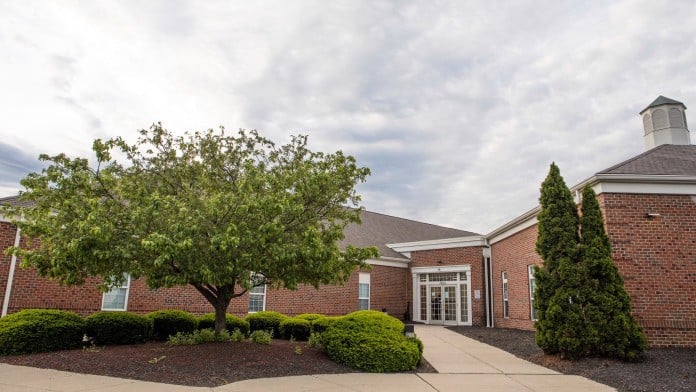
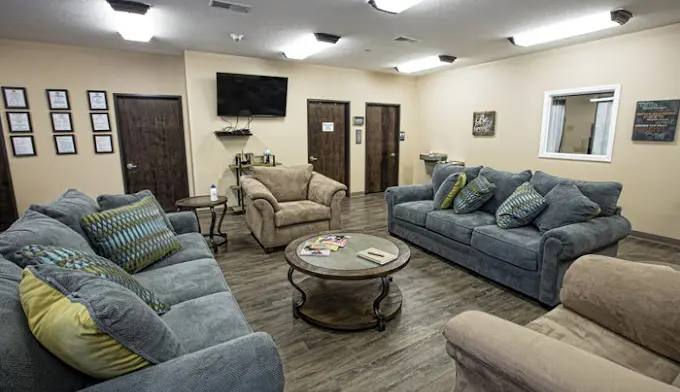
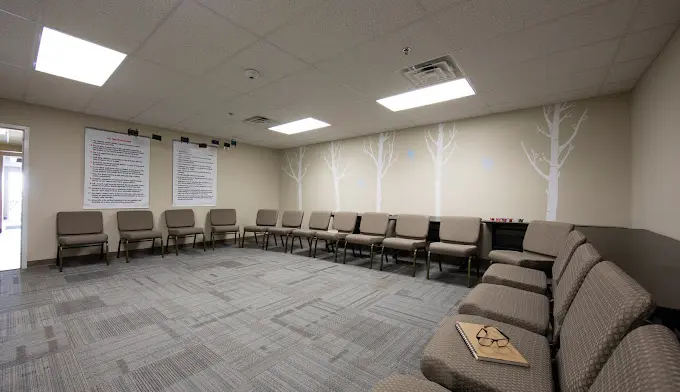
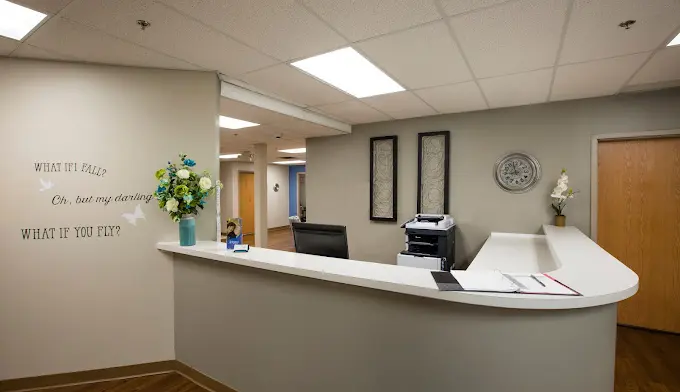
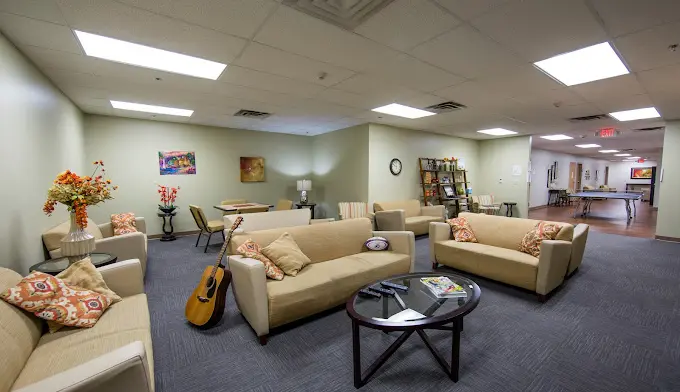
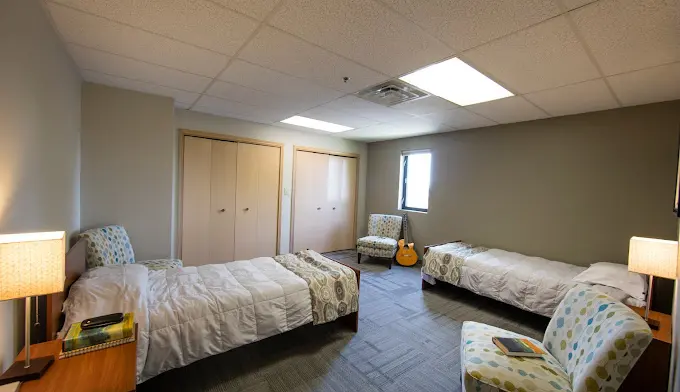
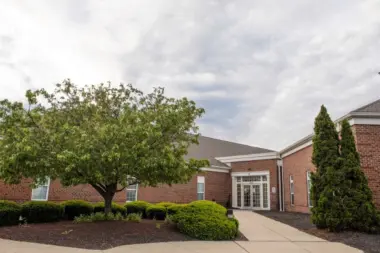
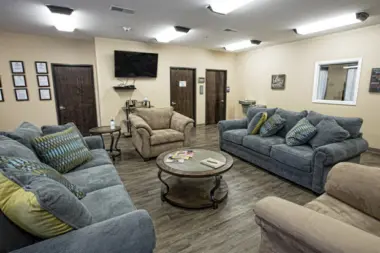
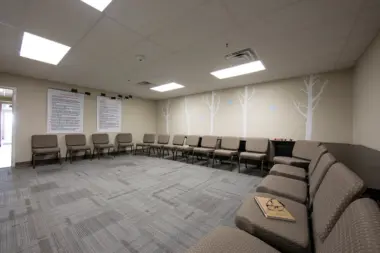
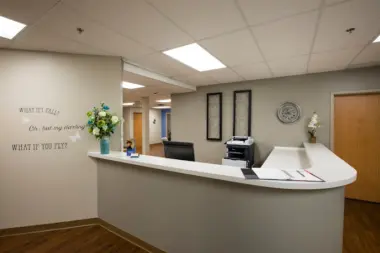
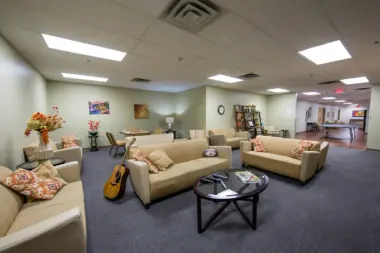
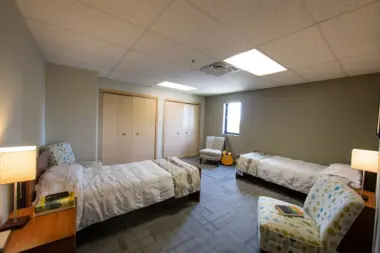
Accepted Insurance
Other Forms of Payment
Private insurance refers to any kind of healthcare coverage that isn't from the state or federal government. This includes individual and family plans offered by an employer or purchased from the Insurance Marketplace. Every plan will have different requirements and out of pocket costs so be sure to get the full details before you start treatment.
Self-pay involves paying for treatment out of your own pocket. You can use savings or credit, get a personal loan, or receive help from family and friends to fund your treatment. If you don't have insurance or your insurance plan doesn't cover a specific program, self-pay can help ensure you still get the care you need.
Medicare is a federal program that provides health insurance for those 65 and older. It also serves people under 65 with chronic and disabling health challenges. To use Medicare for addiction treatment you need to find a program that accepts Medicare and is in network with your plan. Out of pocket costs and preauthorization requirements vary, so always check with your provider.
Medicaid is a state based program that helps lower-income individuals and families pay for healthcare. Medicaid covers addiction treatment so those enrolled can use their coverage to pay for rehab. When a program accepts Medicaid the client often pays very little or nothing out of their own pocket.
Addiction Treatments
Levels of Care
Outpatient rehabs offer robust wraparound care for clients who are stepping down from intensive inpatient care, with many facilities providing multiple levels of care, including partial hospitalization (PHP), intensive outpatient (IOP), sober living/halfway housing, and standard outpatient programming. Clients may also elect to enroll in outpatient care immediately after completing inpatient detox. Those who are at lower risk of withdrawal complications may also choose to receive ambulatory medical detox from an outpatient facility. Outpatient programs typically involve addiction counseling, recovery education, and/or medication assisted treatment (MAT). Holistic therapies, such as art and music therapy, are commonly available.
If you need an intensive, structured setting with 24-hour care, their inpatient program offers a medically monitored, evidence-based therapeutic process. Your customized treatment plan will include counseling, group therapy, their 12-step program, life skills development, addiction education, and mental health treatment as needed.
If you can’t attend their inpatient program, their intensive outpatient program offers more flexible but equally rigorous treatment. Their evidence-based treatment includes individual, group, and family therapy, education classes, and 12-step meetings. Long-term onsite medication-assisted treatment is also available.
A partial hospitalization program (PHP) is a short-term form of intensive rehab, usually for those with acute symptoms that are hard to manage but don’t require 24-hour care. PHPs have structured programming (i.e. individual and/or group therapy), and usually meet 3-5 days a week for around 6 hours (i.e. 9am-3m). Some PHPs are residential (patients sleep on site) and some are not, so patients sleep at home. PHPs can last from 1-6 months, and some offer transportation and meals.
At certain points in the recovery process, it's important to have support available 24/7. 24-hour clinical care offers a safe environment in which to recover from drug or alcohol addiction in peace, knowing medical detox and other treatment will happen with professionals on hand.
Stopping your use of drugs or alcohol can lead to intense discomfort and physical cravings. On your own this has a high risk of potentially severe consequences—they provide medically-supervised withdrawal. Detox is the process of removing drugs and/or alcohol from the body, a process that can be lethal if mismanaged. Medical detox is done by licensed medical professionals who monitor vital signs and keep you safe, healthy, and as comfortable as possible as you go through detox and withdrawal.
Treatments
The goal of treatment for alcoholism is abstinence. Those with poor social support, poor motivation, or psychiatric disorders tend to relapse within a few years of treatment. For these people, success is measured by longer periods of abstinence, reduced use of alcohol, better health, and improved social functioning. Recovery and Maintenance are usually based on 12 step programs and AA meetings.
Drug rehab in Ohio provides comprehensive treatment to address the physical and psychological needs of those struggling with substance use disorders. This may involve inpatient and/or outpatient care.
Many of those suffering from addiction also suffer from mental or emotional illnesses like schizophrenia, bipolar disorder, depression, or anxiety disorders. Rehab and other substance abuse facilities treating those with a dual diagnosis or co-occurring disorder administer psychiatric treatment to address the person's mental health issue in addition to drug and alcohol rehabilitation.
A combined mental health and substance abuse rehab has the staff and resources available to handle individuals with both mental health and substance abuse issues. It can be challenging to determine where a specific symptom stems from (a mental health issue or an issue related to substance abuse), so mental health and substance abuse professionals are helpful in detangling symptoms and keeping treatment on track.
Opioid rehabs specialize in supporting those recovering from opioid addiction. They treat those suffering from addiction to illegal opioids like heroin, as well as prescription drugs like oxycodone. These centers typically combine both physical as well as mental and emotional support to help stop addiction. Physical support often includes medical detox and subsequent medical support (including medication), and mental support includes in-depth therapy to address the underlying causes of addiction.
Programs
Adult rehab programs include therapies tailored to each client's specific needs, goals, and recovery progress. They are tailored to the specific challenges adult clients may face, including family and work pressures and commitments. From inpatient and residential treatment to various levels of outpatient services, there are many options available. Some facilities also help adults work through co-occurring conditions, like anxiety, that can accompany addiction.
Young adulthood can be an exciting, yet difficult, time of transition. Individuals in their late teens to mid-20s face unique stressors related to school, jobs, families, and social circles, which can lead to a rise in substance use. Rehab centers with dedicated young adult programs will include activities and amenities that cater to this age group, with an emphasis on specialized counseling, peer socialization, and ongoing aftercare.
Clinical Services
Cognitive Behavioral Therapy (CBT) is a therapy modality that focuses on the relationship between one's thoughts, feelings, and behaviors. It is used to establish and allow for healthy responses to thoughts and feelings (instead of unhealthy responses, like using drugs or alcohol). CBT has been proven effective for recovering addicts of all kinds, and is used to strengthen a patient's own self-awareness and ability to self-regulate. CBT allows individuals to monitor their own emotional state, become more adept at communicating with others, and manage stress without needing to engage in substance abuse.
The main goals of dialectical behavior therapy are to teach you how to regulate your emotions, develop positive ways to cope with stress, improve your relationships, and live in the moment. This therapy lasts about six months and involves weekly individual and group sessions.
Group therapy is any therapeutic work that happens in a group (not one-on-one). Group therapy gives you an opportunity to talk with others facing similar challenges. In addition to helping you realize you are not alone, it is a good forum for practicing new, healthier interactions and challenge your current attitudes.
In individual therapy, a patient meets one-on-one with a trained psychologist or counselor. Whether part of your initial outpatient treatment or part of maintaining your sobriety, counseling is a cornerstone of their treatment programs. In addition to a safe, supportive place to talk, their counselors provide education on the skills needed for lasting recovery and healthy living.
Trauma therapy addresses traumatic incidents from a client's past that are likely affecting their present-day experience. Trauma is often one of the primary triggers and potential causes of addiction, and can stem from child sexual abuse, domestic violence, having a parent with a mental illness, losing one or both parents at a young age, teenage or adult sexual assault, or any number of other factors. The purpose of trauma therapy is to allow a patient to process trauma and move through and past it, with the help of trained and compassionate mental health professionals.
Designed for those with a loved one in residential treatment, their family support group offers time to hear from and talk with families in similar circumstances. It also provides education on living with and supporting someone in recovery. Research clearly demonstrates that recovery is far more successful and sustainable when loved ones like family members participate in rehab and substance abuse treatment.
Life skills trainings involve all the skills a person must have in order to function successfully in the world. These include time management, career guidance, money management, and effective communication. Truly successful addiction recovery is based on the ability to not only live substance-free, but to thrive. Life skills teaches the practical necessities of functioning in society, which sets clients up for success in life, and therefore sobriety.
Nutrition therapy, aka medical nutrition therapy (MNT), is a way of treating physical, emotional, and medical conditions through diet. Specific dietary plans are designed by professional nutritionists or registered dietitians, and patients follow them in order to positively affect their physical and mental health.
Recreational therapy (aka therapeutic recreation) uses creative and fun activities to help with addiction recovery. Recreational therapists lead patients in entertaining and engaging activities like sports or games; art (drawing, painting, sculpture); drama, music, and dance; and/or community outings (field trips) to improve patients' physical, social, and emotional well-being.
Amenities
-
Yoga Studio
-
Residential Setting
-
Private Rooms
Staff & Accreditations
Staff
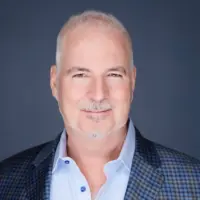
Michael Lawler
Chief Executive Officer

Brian Thorn
Chief Operating Officer

Dr. Chris Dennis, , MD, MBA, FAPA
Chief Medical Officer
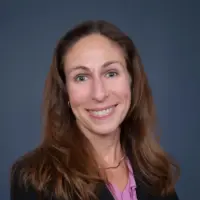
Dr. Carin Kottraba, , Ph.D.
Chief Clinical Officer
Accreditations

The Commission on Accreditation of Rehabilitation Facilities (CARF) is a non-profit organization that specifically accredits rehab organizations. Founded in 1966, CARF's, mission is to help service providers like rehab facilities maintain high standards of care.
CARF Accreditation: Yes
Accreditation Number: 312706
Contact Information
7400 Huntington Park Drive
Columbus, OH 43235








